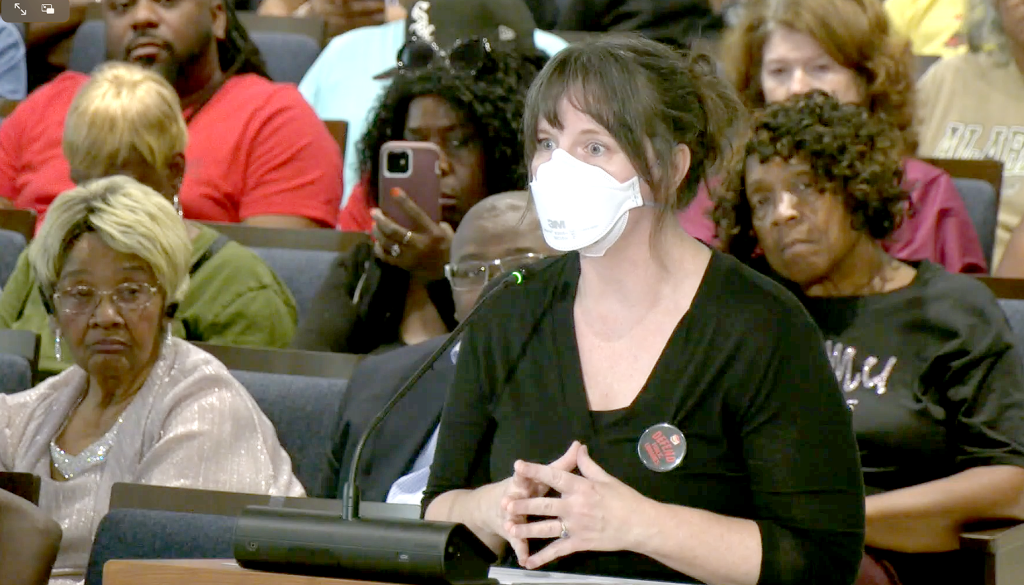By SPEAKIN’ OUT NEWS

HUNTSVILLE — During Thursday night’s Huntsville City Council meeting, residents used the public comment period to spotlight concerns about stagnant library funding, censorship pressures, and the city’s budget priorities.
Dr. Marissa Allison, a District 2 resident, addressed the council directly, criticizing what she called years of underfunding for the Huntsville-Madison County Public Library system while the Huntsville Police Department saw millions in budget increases.
“We were told money is tight, yet somehow you were able to increase HPD by $7.3 million,” Allison said. “Meanwhile, our library has been left with level funding for three years in a row.”
Concerns Over Censorship and Costs
Allison pointed to a recent directive from the Alabama Public Library Service Board, which she described as “unconstitutional and transphobic.” If enforced, she said, the order would require Huntsville’s libraries to remove certain books from children’s and young adult sections — a move she argued would be both costly and harmful to the community.
She noted that last year alone, compliance with similar mandates cost Huntsville libraries more than $60,000 in unfunded expenses. Staff, meanwhile, went without cost-of-living raises.
Comparisons to Other Alabama Cities
Allison contrasted Huntsville’s library funding with other major Alabama cities:
- Mobile: $8.2 million in library funding for a system comparable in size.
- Birmingham: A $2.6 million increase since 2024, bringing its library budget to $16 million.
- Huntsville: $5.6 million, despite serving the largest population in the state with what Allison described as “the oldest infrastructure system in Alabama.”
“We have the most people we serve, and yet we have the oldest system. Somehow nothing has been done to help our libraries out,” she said.
Federal Funding Uncertainty
Allison also warned that federal library dollars funneled through the Institute of Museum and Library Services could dry up under the Trump administration’s proposed budget cuts. With federal support uncertain, she pressed council members to recognize the library system as “a vital public service that needs to be funded and addressed.”
She urged the city to rethink its budget priorities before final passage.
“I really hope you all think about what sort of stock you have if you do pass this budget — how you can support our library better and support the citizens of the city better,” Allison said.
Conclusion
Dr. Marissa Allison’s comments were largely grounded in fact, drawing on publicly available budget data, library board discussions, and state policy actions. Her warnings about state-level censorship efforts align with recent moves by the Alabama Public Library Service Board, which has already withheld funding from libraries over compliance disputes. While some figures merit further review, her broader points about chronic underfunding, censorship pressures, and looming financial risks are well supported, underscoring the urgency of her appeal to the council.

